You never know what will happen when you meet an aspiring sports star who is at the very beginning of their career.
Will they react as if auditioning for a Trappist monastery?
Will all their gallusness on the court, on the pitch or in the pool, be replaced by grunts and teenage angst?
Or will they open up about what impels and inspires them as they seek Olympian heights?
There was never any problem on that score when I first met Andy Murray more than 20 years ago at the Gannochy Sports Centre in Stirling.
He had already served notice of his potential on the international circuit, but now he was moving up several notches.
He never wanted any favours
And, just as his mother, Judy, had been as fragile as a moose in steering her sons, Jamie and Andy, through the pitfalls of “The boys most likely to….”, so her youngest lad was almost heroically honest, heartfelt and hard-nosed about what he needed in his life.
It wasn’t praise or platitudes, by the way, because he couldn’t care less about them.
No, it was the chance to compete on a level playing field with his peers and use all his various qualities from thrawness and tenacity to technical expertise and talent for a game where love means nothing. And he has certainly risen to the task.
Sometimes, as the media swoons over the three-time major winner and twice-Olympic champion these days, it’s easy to forget how lonely Murray’s journey was at the outset.
Not in terms of his family unit – Judy was a rock and Jamie was the willing big bruv – but his decision to escape the insular world of British tennis and blaze his own trail.
I had to test myself against the best
A lesser individual could have basked in the reflected glory of staying in Blighty and being the big man on campus, No 1 in his homeland, but that never appealed.
Instead, this redoubtable character travelled to Spain, put himself through the wringer, toiled behind the scenes, gradually scaling the global rankings and all on his own terms.
He told me that he knew he had to keep pursuing new standards to stay ahead of the tide of quality youngsters who were emerging from the old Eastern Bloc. (Including a young chap born in the same month as him called Novak Djokovic).
Controversially, he added that he preferred the atmosphere at the US Open and, as a boxing fan, relished the racket amidst the rackets of New York’s Flushing Meadows, to the cream teas and Cliff Richard songbook which you once associated with Wimbledon.
A raging bull in the spotlight
In terms of popularity, he could take it or leave it. After all, as somebody who had been very close to genuine tragedy – and the horror of the Dunblane massacre in 1996 – Murray realised there was nothing disastrous about losing a set of tennis.
So he had perspective from the outset. Yes, he could scream and curse at his coaches like Billy Connolly on a roll at the Glasgow Apollo and, often enough, was the opposite of sweetness and light. And I’ve never forgotten a group of English tourists in Portugal telling me they thought Andy was, shudder, terribly “uncouth”.
Well, he hasn’t become any more couth in the last 15 years, but even the curmudgeons can appreciate what Andy has achieved and how he has revolutionised a sport which had no international history to speak of in Scotland until his arrival.
That’s one of the reasons why I regard him as Scotland’s greatest-ever sports personality. There’s a legacy now, one which he and his family have established and which he and Jamie – who basically won the Davis Cup on their own – have nurtured without being born with silver spoons in their mouths.
Nothing is ever taken for granted
And that’s another part of his appeal. There’s still a lot of sexism, conscious and subliminal, in the toy department of games and leisure pursuits.
But Andy won’t and never has tolerated it. It’s one of the reasons why he is cherished by the likes of the Williams sisters and Martina Navratilova. Whether hitting a service or lobbing balls at the chauvinists, he has constantly proved capable of aceing it.
There’s not much more to add as Andy prepares for his last-ever tennis match – a doubles contest at the Olympics – except to express gratitude for the fashion in which this passionate performer with a dry-as-Nevada sense of humour has graced the courts.
But I was recently reminded of an interview which Judy did with the BBC’s John Inverdale, at Wimbledon, where it was as if the two were living in parallel universes.
They believe it’s Tennis for All
In one corner, Judy, all beetle-browed energy and enthusiasm, spoke passionately about the need for improved facilities, the urgency of persuading kids to try the game, and her deeply-held conviction that the sport requires joined-up thinking, not just to produce elite stars in the future, but to grant youngsters access to free tennis.
Her message was crystal-clear and she and her sons have taken it to Aberdeen, Moray, the Highlands, all across the country. But, for whatever reason, Inverdale either couldn’t get the point, or didn’t seem to comprehend what Judy was talking about.
That’s his loss. In the bigger picture, as Andy walks off into the sunset like an ageing gunslinger at the end of High Noon, his achievements speak for themselves.
And it’s all there in glorious technicolour from being encouraged by Sean Connery to his transformation into Murray: The Man with the Metal Hip.
If you’re not inspired by the man, you really don’t like sport very much, do you?
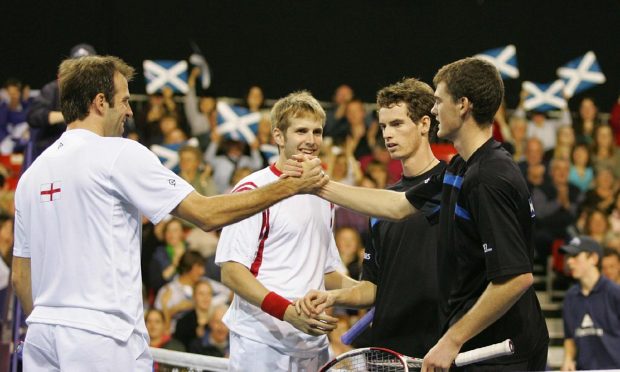
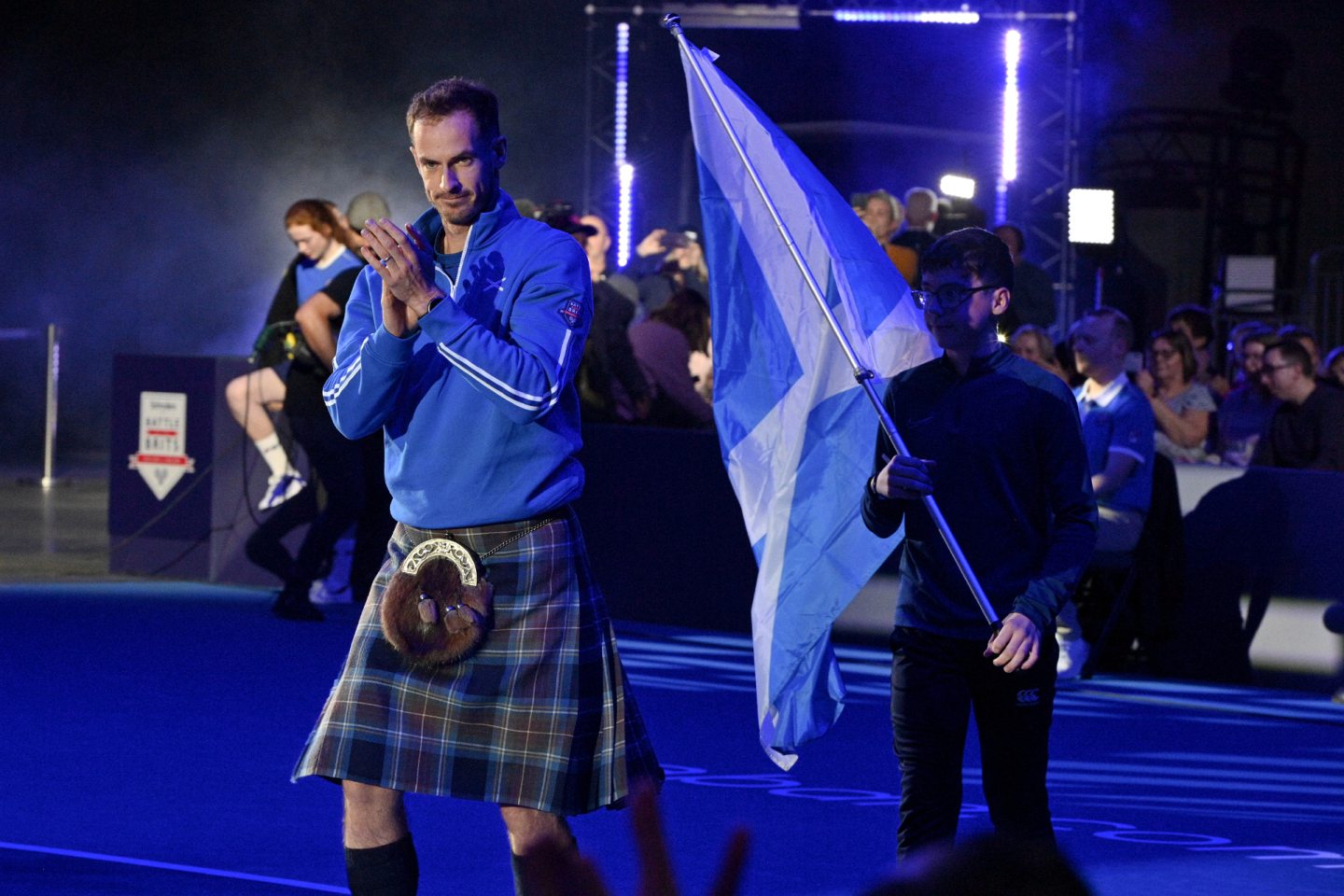
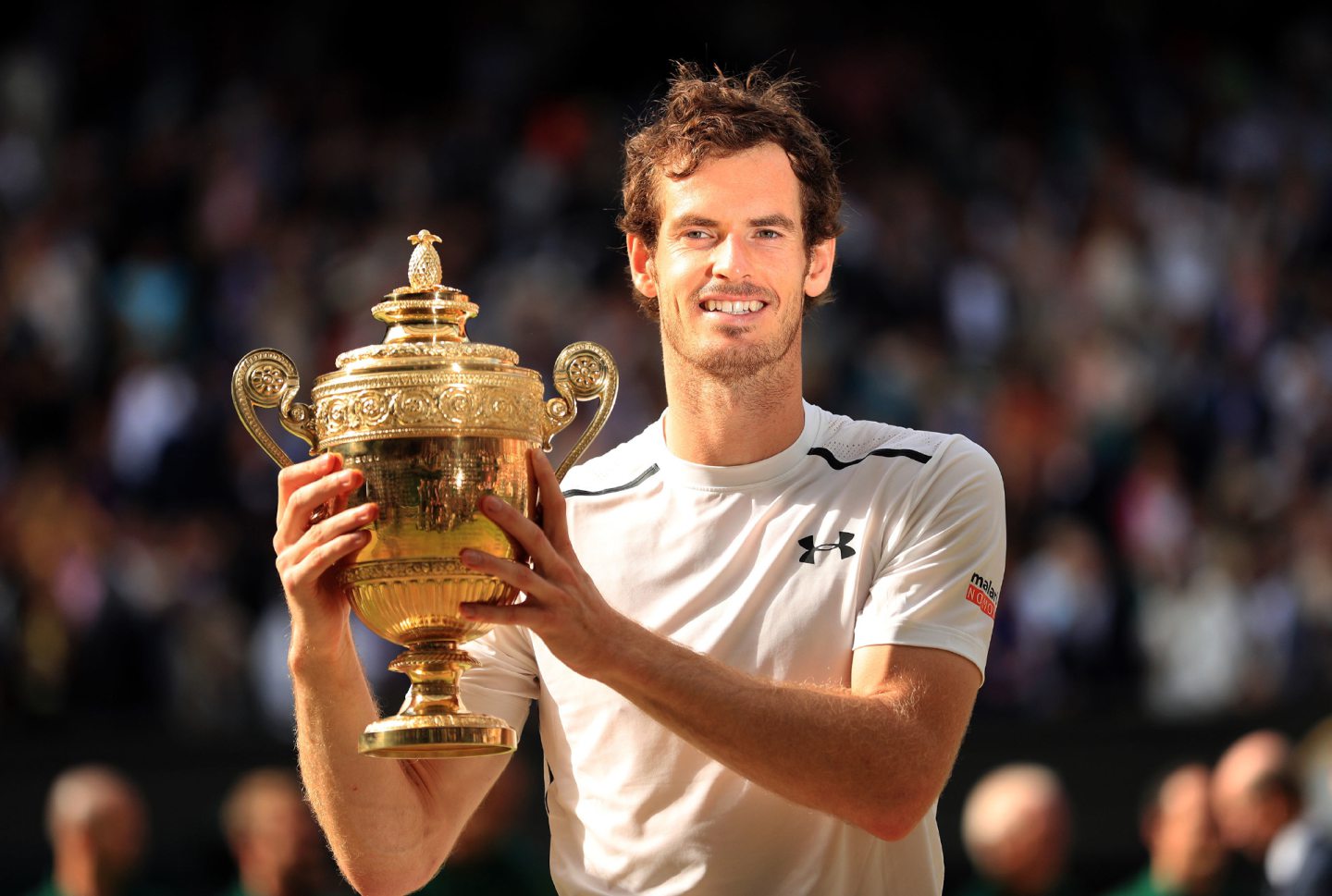
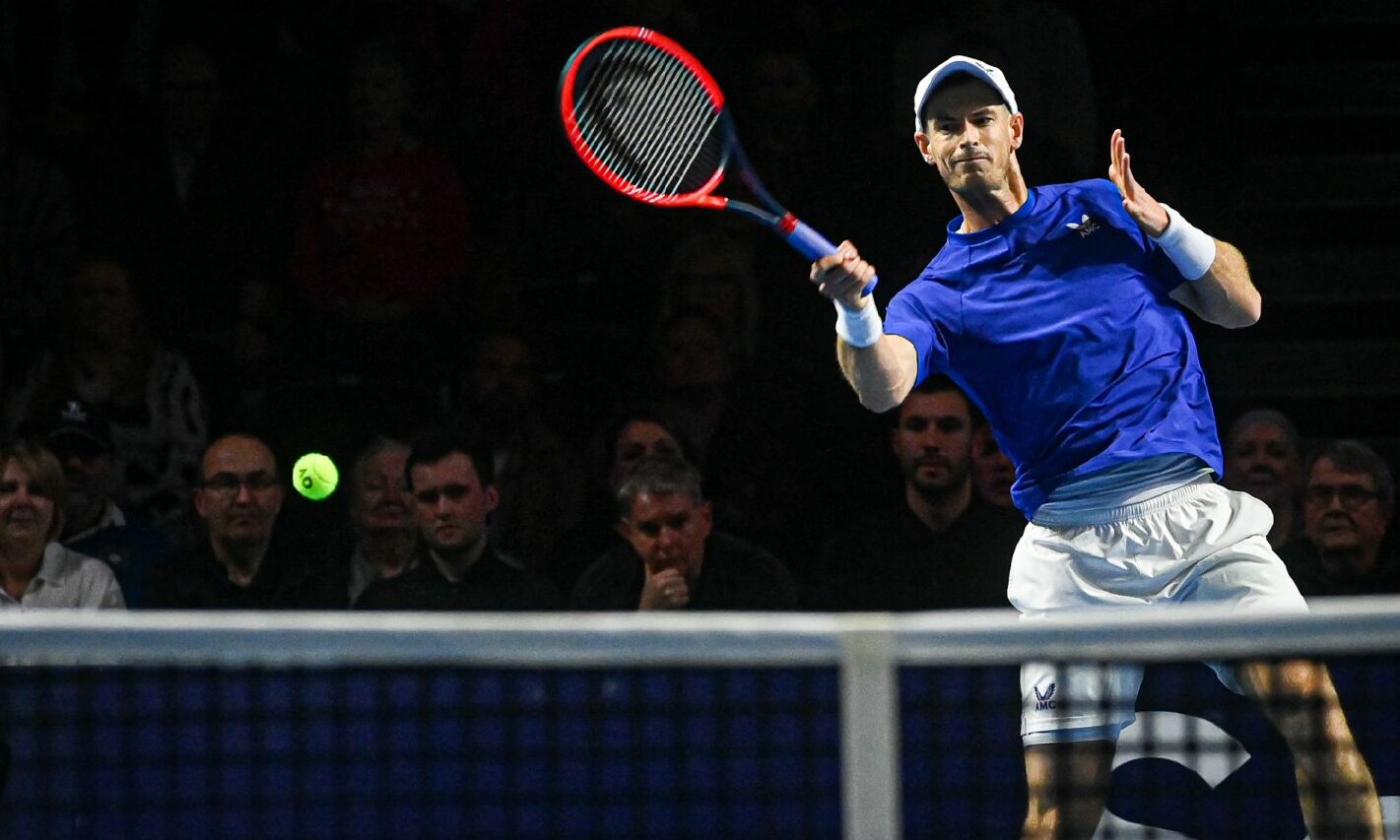
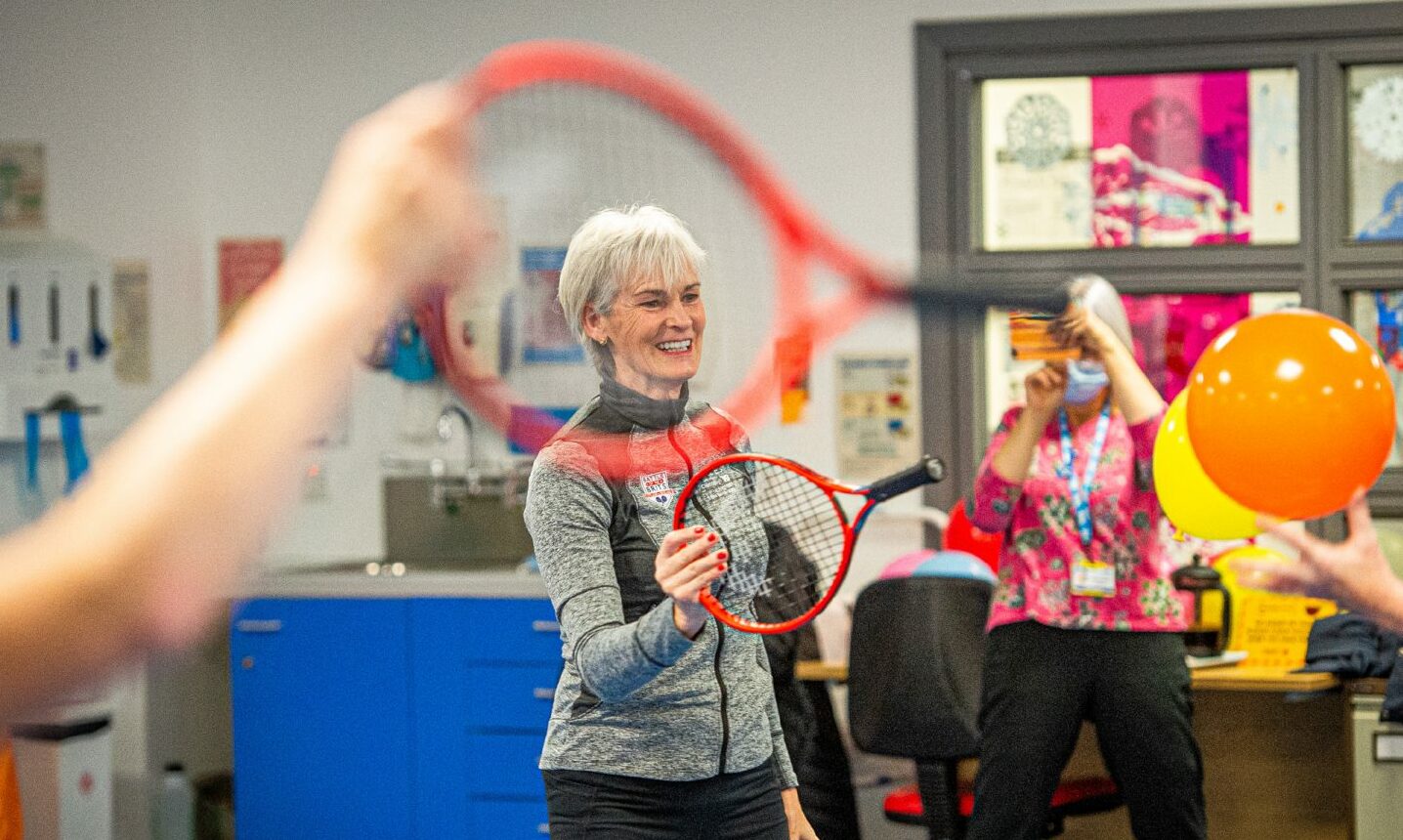
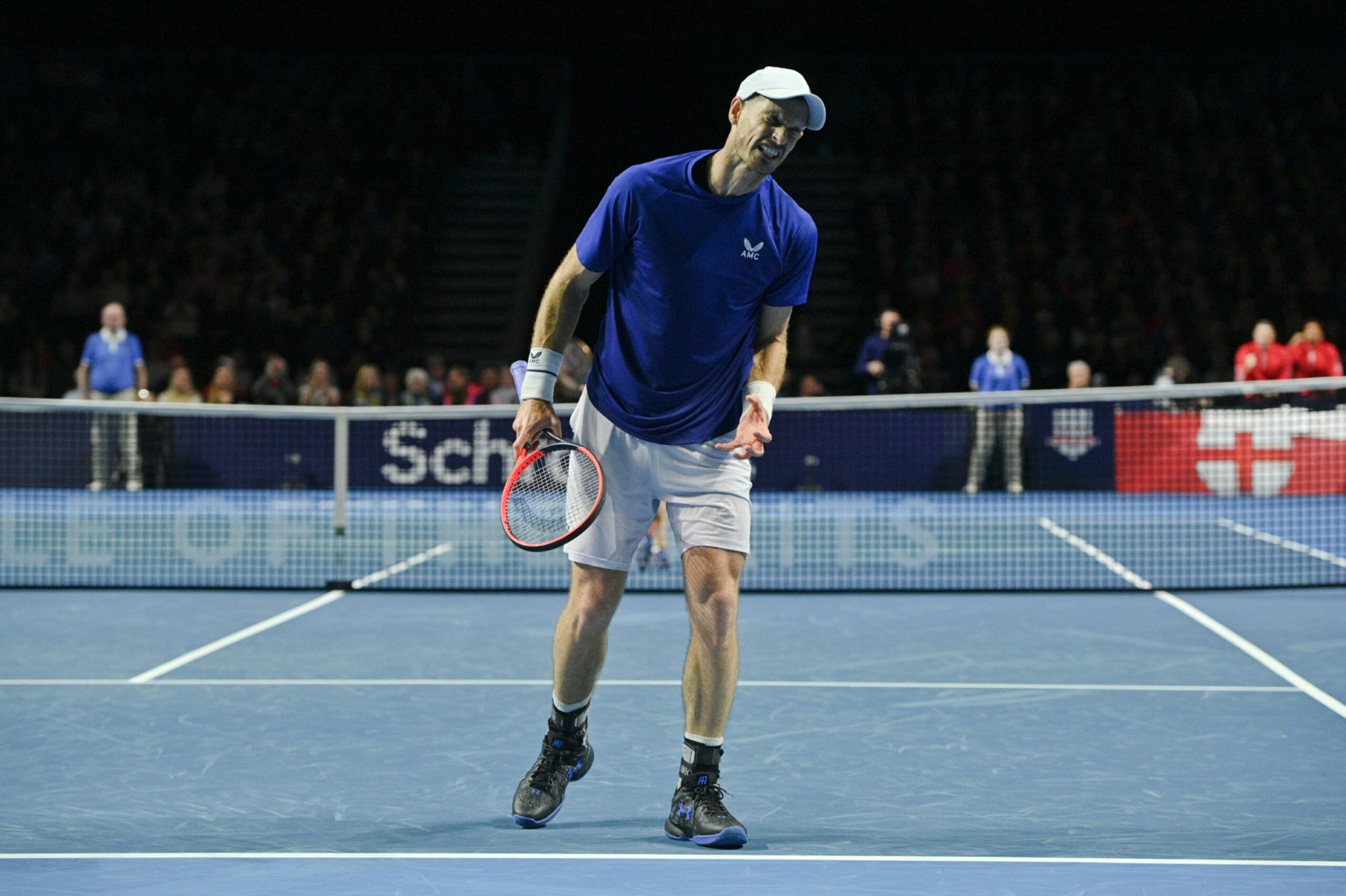
Conversation